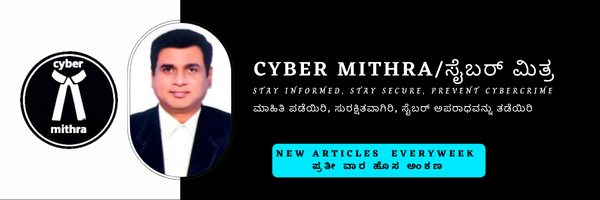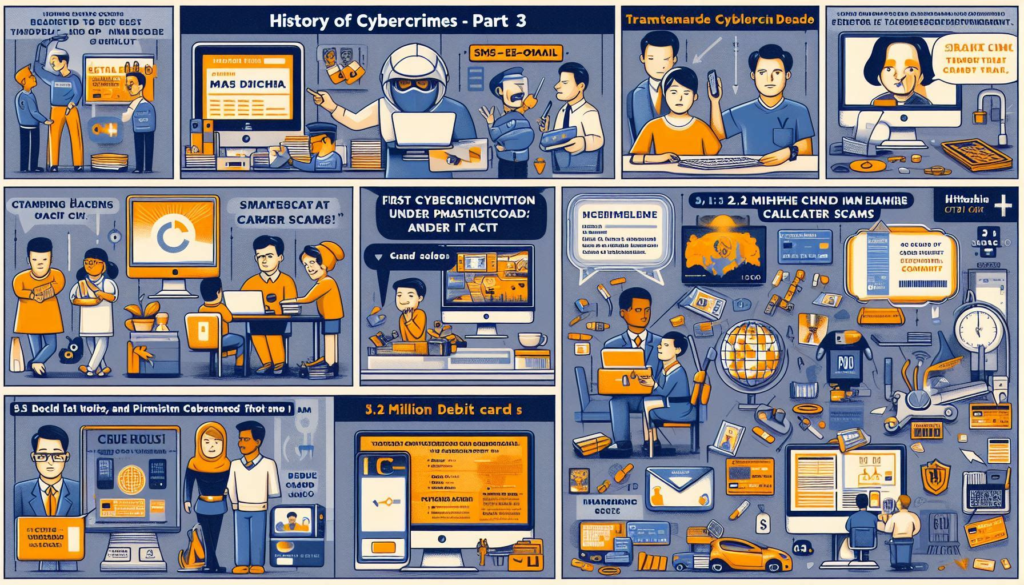History of Cybercrimes – Part 3
History of Cybercrimes is fascinating, Last two articles, I talked about the history of cybercrime across the world from 1834 to 2005 as after that cybercrime became mainstream with many organized gangs and companies got in and amount of money involved also multiplied. Most of you would be aware of the things that happened after 2005. This week, I am going to talk about the History of cybercrimes in India, here I am going to take the help of landmark or interesting cases to talk about some of the stories behind the cybercrimes in India. Cybercrimes became officially a crime in India only in 2000, when first law against cybercrime “Information Technology Act, 2000” was created, which also modified our main penal law “Indian Penal Code, 1860” & our main evidence law “Indian Evidence Act, 1872” to recognize electronic evidence and crimes. Though it’s fair to say Indian Telegraph Act, 1885 had some penal provisions for crimes associated with Telegraph & Telephone and Legal Jurisprudence(Courts) played a major role in handling the cyber crimes till then.
History of Cybercrimes in India :-
Some of the initial cybercrimes in India include SMS/E-Mail scams(Nigeria scams, where we were told some rich prince has bequeathed huge money in our name and we have to pay small amount to get it, and once you pay it nothing happens further), Postcard/Inland card scams -VPP(Delhi Mixi scam – We were told that we have won prizes(TV/Mixi/Fan etc.) for solving crossword or suduku and need to pay postal charges to collect it, but the parcel was fake or dummy or stone), International/National telephone call scams(Where we were billed for some crazy national/international calls we never made as someone would have hacked the telephone line and made those calls).
First recognized cybercrime in India happened in 1999, when Akash Arora was accused of utilizing the trademark or domain name ‘yahooindia.com’ illegally to his website name to sell goods and make money. This is also the first trademark case in India. First conviction in India for cybercrime under IT Act,2000 happened in 2004 when Accused Suhas Katti cyber stalked and sent obscene and harassing messages against a divorced lady in a Yahoo chat group. First major financial cyber fraud in India was registered in 2005, when $ 3,50,000 was fraudulently moved from four Citibank accounts in the United States to a few fake accounts by employees of Mphasis, Pune.
Since IT Act does not have strong punishments, police charge accused under IPC, a landmark court judgement came in Bazee.com case in 2004 that “special law(s) such as the IT Act shall prevail over general and prior laws”. In this case, an obscene MMS video was listed for auction sale on the website www.bazeee.com, owner of website was held and charged under IT Act & IPC. In another landmark judgement in year 2005 in case Nasscom v. Ajay Sood, supreme court ruled that the victim can get compensation for the loss in business from the tormentor.
Lot of major data breaches have happened in India too over years, first data breach happened in year 2016, when 3.2 million debit card details was leaked to criminals due to a Hitachi ATM & POS software hack. The biggest data breach happened in year 2023, when more than 810 million Aadhaar records including personal details and biometrics were put on auction on a darkweb website by some unknown cybercriminal. Data breach which impacted Indian national security happened in year 2019, when North Korea based Lazarus group infected a malware into the computer at Kudankulam nuclear power plant and stole sensitive information from that network after obtaining admin password.
This was my last article on the History of Cybercrimes and I hope you liked and was thrilled like me reading some of the stories and facts about it.


